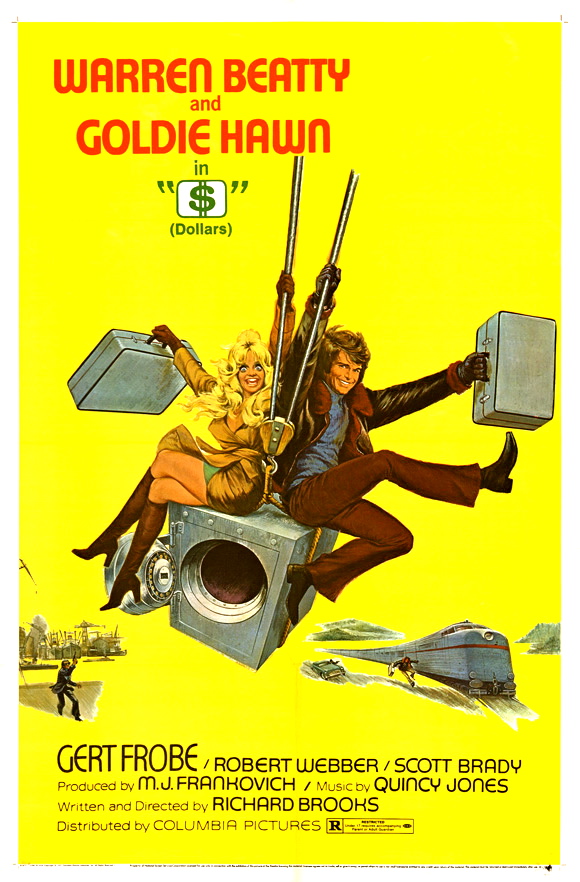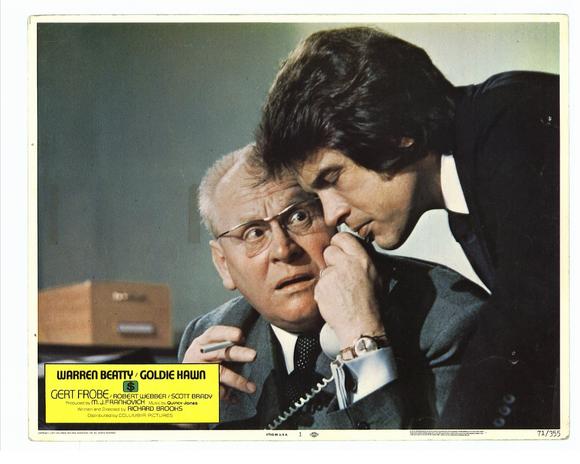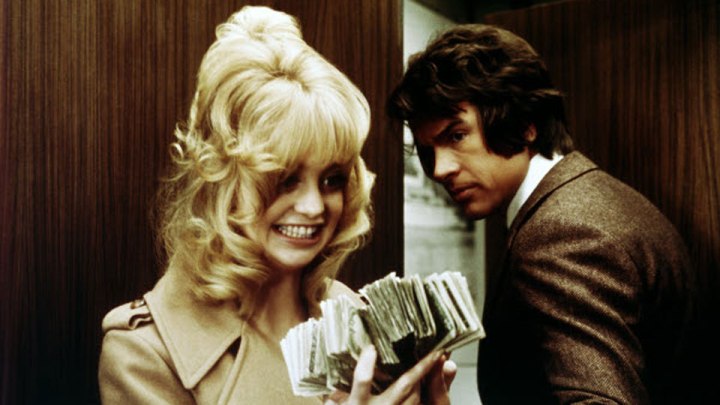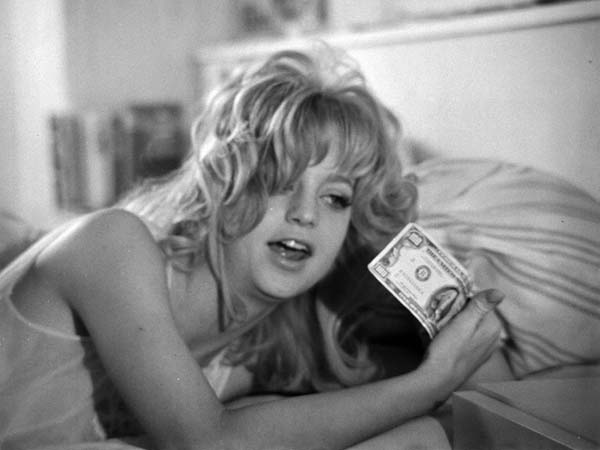(aka Dollars, although, uniquely, no actual title appears in the credits sequence — only an enormous golden dollar sign being flown from a crane.)
By Scott Ross
The redoubtable Richard Brooks, as writer and director, tries his hand at an original for a change, and it works beautifully. An ethically ambiguous caper thriller with elements of comedy (not, as the poster would have you believe, the reverse) $ is cheerfully amoral, rigorously clever in the very best sense, and strikingly photographed and edited. The cutting is faster than is usual for Brooks, and it’s interesting to compare his forceful but more sedate style with that of the year’s big crime movie, William Friedkin’s cinéma vérité police procedural The French Connection which, like $, includes a long and elaborate chase.

The ’60s-esque caper art for the $ poster promises a How to Steal a Million-style romp. The reality was something different, and more interesting.
Brooks, however, is more humanist than the notably chilly Friedkin, his outlook informed not by sentiment or unrefined optimism but by the impulse to treat his characters as people rather than the usual cutout figures. They tend to transcend trope, and stereotype: Gert Frobe’s fat banker, for example, is a genial married letch, but his basic impulse, surprisingly, is compassion.

Warren Beatty, looking impossibly trim and scrumptious as only he could in the 1970s, is the security expert out to steal, not from the institution itself but from a trio of especially ripe criminals (Mafia attorney Robert Webber, enterprising U.S. Army Sargent Scott Brady and coldly murderous drug dealer Arthur Brauss) each of whom holds a safety deposit box within the German bank. They’re all crooks, who, in Beatty’s worldview, deserve to be ripped off.

$ takes a little getting used to, as Brooks introduces us to the characters, without explaining them, but once the movie begins rolling the pieces click into place as you’re watching. It’s an especially satisfying audacity for a moviemaker to trust his audience’s intelligence to this degree in the creation of what is, after all, a popcorn entertainment. We can only imagine the slack-jawed consternation of any Hollywood studio executive today being confronted with that sort of narrative subtlety.

Goldie Hawn is all giggles and self-doubt as Beatty’s accomplice, a confessed goof who also isn’t nearly as dumb either as she seems, or believes; Brady has what may be his career-high role as the relentless Sargent; and Brauss is memorably frightening as “The Candyman.” The cinematography of Petrus Schloemp is stunningly good; the remarkably sharp, richly textured images pop off the screen, yet without self-consciousness or Technicolor camp. $ looks as contemporary as it feels.
Richard Brooks’ script is crisp and intelligent, as is his direction. Each time you think you’ve got the measure of Beatty and Hawn, and what they’re up to, Brooks twists the plot in one additional, unexpected — but never fraudulent — direction. $ was a nice warm-up; in 1975 that impulse to confounding expectations in a positive fashion would give Brooks his finest hour as a writer-director, in the woefully underrated (and criminally under-seen) Bite the Bullet, which, like $, benefits from narrative sleight-of-hand, creative compassion, and an ending as sweetly satisfying as the finale here is wittily apt.
Text copyright 2014 by Scott Ross

